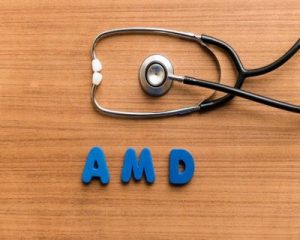- Home
- Editorial
- News
- Practice Guidelines
- Anesthesiology Guidelines
- Cancer Guidelines
- Cardiac Sciences Guidelines
- Critical Care Guidelines
- Dentistry Guidelines
- Dermatology Guidelines
- Diabetes and Endo Guidelines
- Diagnostics Guidelines
- ENT Guidelines
- Featured Practice Guidelines
- Gastroenterology Guidelines
- Geriatrics Guidelines
- Medicine Guidelines
- Nephrology Guidelines
- Neurosciences Guidelines
- Obs and Gynae Guidelines
- Ophthalmology Guidelines
- Orthopaedics Guidelines
- Paediatrics Guidelines
- Psychiatry Guidelines
- Pulmonology Guidelines
- Radiology Guidelines
- Surgery Guidelines
- Urology Guidelines
Macular degeneration treatment results improve with efficient fluid mixing

SEATTLE -According to a new study, Macular degeneration treatments may be improved with thermally induced fluid mixing. The study by Jinglin Huang, a graduate student in medical engineering at Caltech, suggests inefficient fluid mixing of the injected medicine and the gel within the eye may be to blame. The talk, "Thermal Effects on Fluid Mixing in the Eye," has been presented at 72nd Annual Meeting of the American Physical Society Division of Fluid Dynamics.
Age-related macular degeneration is the primary cause of central vision loss and results in the centre of the visual field being blurred or fully blacked out. Though treatable, some methods can be ineffective or cause unwanted side effects.
AMD usually starts as "dry" AMD, a disorder in which the macula -- the central part of the retina, responsible for sending information about focused light to the brain to create a detailed picture -- thins with age. Dry AMD is very common and is not treatable but may eventually evolve into "wet" AMD, which is more likely to result in vision loss. In wet AMD, abnormal blood vessels grow on the retina, leaking fluids under the macula. In the case of wet AMD, injections of medications called anti-vascular endothelial growth factor agents into the eye can help manage the disorder.
Huang said because the medication does not mix with the gel-like fluid in the eye -- the vitreous -- efficiently. Applying heat to the mixture can solve this problem.
"Because thermally induced mixing in the vitreous chamber can promote the formation of a circulation flow structure, this can potentially serve the drug delivery process," Huang said. "Since the half-life of the drug is limited, this thermally induced mixing approach ensures that more drug of high potency can reach the target tissue."
To apply the thermally induced mixing technique, no changes in the injection procedure are needed. An additional heating step after the injection is all that is required.
"It can potentially reduce the amount of drug injected into the vitreous," said Huang. "It is definitely easy to be implemented."
Huang and her colleagues hope this work will inspire eye doctors to develop better treatment techniques and improve patient experiences.

Disclaimer: This site is primarily intended for healthcare professionals. Any content/information on this website does not replace the advice of medical and/or health professionals and should not be construed as medical/diagnostic advice/endorsement or prescription. Use of this site is subject to our terms of use, privacy policy, advertisement policy. © 2020 Minerva Medical Treatment Pvt Ltd